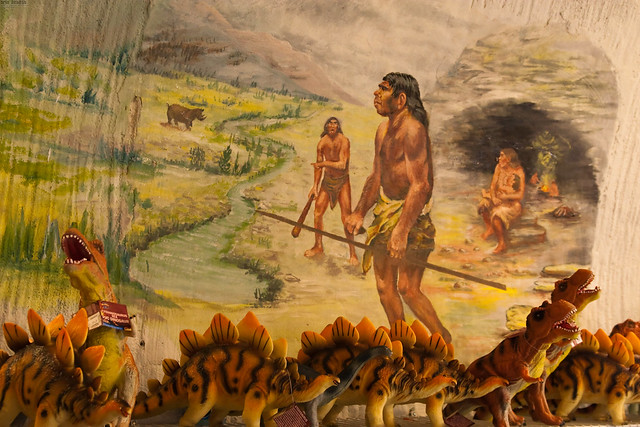
Don’t *they* say, never talk about religion or politics?
Oops.
Full disclosure – I’m not remotely Bible ‘y’ or Jesus ‘y’. I believe there is beauty and truth at the heart of all religions, and they were no doubt pure at their origin, but organised religions of today leave me cold. Through the ages they became super patriarchal, and thus don’t really speak to me. They ‘other’ise women, and I don’t believe that God would want ANY living being to be seen as ‘other,’ and treated as if they were ‘less than’ because of whatever ridiculous human/social construct.
(Luckily, organised religions don’t have a monopoly on God, so we are free to believe as we choose – yay!)
I studied religion for my MA, which required the reading of lots of religious texts. One thing I learned is that they have two elements. One consists of the verses that are ‘universal’ – that is to say, they transcend era, and can apply to anyone, anywhere (these are the verses that seem to hold truths); and the other element consists of more ‘contextual’ verses. These verses are often proscriptive, relating to conditions at the time they were written, and when read with modern eyes, some are clearly outdated and unjust, and not in the spirit of the text as a whole – the verses about slavery and the uncleanness of women for example.
What point am I trying to make? This one.
I have read so many anti-vegetarian arguments that cite religion as a justification for eating animals, like – you’re not a proper (X) if you don’t eat meat. As far as many people within organised religions are concerned, being vegetarian (let alone vegan!) is almost akin to anarchy and being a ‘heathen’. Many believe it is divinely ordained that people eat meat, and if we go against this, we are disrespecting God.
When we look at any religious verse, we have to consider three things – the language (all possible translations of each word), the historical and political context in which it was written, and whether it fits into the spirit of the text as a whole.
If we focus on the three Abrahamic religions (Judaism, Christianity and Islam), there are verses in all the texts that would seem to promote vegetarianism, but there are also some that appear to permit eating meat.
The first peoples in the Christian and Jewish texts appear to have been vegetarian, hence Genesis 1:29-30
Then God said, “I give you every seed-bearing plant on the face of the whole earth and every tree that has fruit with seed in it. They will be yours for food.
But meat-eating seems to have become permitted after the great flood (yes, the one with Noah and the ark!). See Genesis 9:2-4
The fear and dread of you will fall on all the beasts of the earth, and on all the birds in the sky, on every creature that moves along the ground, and on all the fish in the sea; they are given into your hands. Everything that lives and moves about will be food for you. Just as I gave you the green plants, I now give you everything. But you must not eat meat that has its lifeblood still in it.
But this permission came with caveats. In the book of Leviticus, we are taught only certain animals are permissible, and no blood must be left in the animal to be eaten. This does not exactly suggest that eating meat is ideal, just that it is permissible. More like: ok, if you must, but do it in *this* way.
Some scholars believe that it was only permitted after the flood as there was no more vegetation left on earth, so it was, in effect, temporary permission, and made difficult, so people wouldn’t eat too much of it.
Many Christians believe Jesus was vegetarian, and Seventh Day Adventists and the Bible Christian Church are largely vegetarian.
Which verses in the Bible seem to promote vegetarianism?
This one is my favourite:
Surely the fate of human beings is like that of the animals; the same fate awaits them both: As one dies, so dies the other. All have the same breath; humans have no advantage over animals. Everything is meaningless. All go to the same place; all come from dust, and to dust all return. Ecclesiastes 3:19-2
And don’t forget:
Thou shalt not kill. Exodus 20:13
Your righteousness is like the mighty mountains, your judgments are like the great deep; you save humans and animals alike, O Lord. Psalms 36:6
The Lord is good to all and His tender mercies are over all His creatures.
Psalms 145:9A righteous person regards the life of his or her animal, but the tender mercies of the wicked are cruel.
Proverbs 12:10Are not five sparrows sold for two pennies? Yet not one of them is forgotten in God’s sight. Luke 12:6
It is better not to eat meat or drink wine or to do anything else that will cause your brother or sister to fall.
Romans 14:2
And get this, from the book of Daniel. Daniel is being held captive in the king’s court with three other guys, and he does his own dietary study!!
Daniel then said to the guard whom the chief official had appointed [over him and three others] “Please test your servants for ten days: Give us nothing but vegetables to eat and water to drink. Then compare our appearance with that of the young men who eat the royal food [rich meats and wines], and treat your servants in accordance with what you see.” So he agreed to this and tested them for ten days.
At the end of the ten days they looked healthier and better nourished than any of the young men who ate the royal food. So the guard took away their choice food and the wine they were to drink and gave them vegetables instead.
To these four young men God gave knowledge and understanding of all kinds of literature and learning. And Daniel could understand visions and dreams of all kinds. Daniel 1:11-17
Now of course there are verses that mention meat or fish, but often, scholars have argued that the word meat has been wrongly translated from a Greek word (broma) that actually means just ‘food.’ Similarly, it is argued that in some verses, the word fish is actually a mis-translation of the Greek word for seaweed.
————————————————————-
In Islam, which came five hundred years after Christianity, meat-eating is permitted, again with very strict conditions attached. When we look at the life of the Prophet however, he did not eat meat often; at a celebration maybe, or at a time when no other vegetable food was available.
Consider these verses from the Qur’an:
And there is no creature on [or within] the earth or bird that flies with its wings except [that they are] communities like you. We have not neglected in the Register a thing. Then unto their Lord they will be gathered. Al-An’am 6:38
And the earth, He has assigned it to all living creatures. Ar-Rahman 55:10
While the Qur’an is the holiest text in Islam, also holy are the Hadith, which are accounts (many first-hand) of the sayings and actions of Muhammad. Muhammad explicitly forbade hunting animals for sport and there are so many accounts of him chiding those who mistreat animals that I cannot list them all here. Here are some Hadith on that subject:
Whoever is merciful even to a sparrow, Allah will be merciful to him on the Day of Judgment. Imam Malik’s Muwatta Chapter No: 26, The Aqiqa
A good deed done to an animal is like a good deed done to a human being, while an act of cruelty to an animal is as bad as cruelty to a human being. Mishkat Al-Masabih has concluded this Hadith from Bukhari and Muslim
Whoever is kind to the creatures of God is kind to himself. Narrated by Abdullah bin ‘Amr
The Companions said,”O Allah’s Messenger! Is there a reward for us in serving the animals?” He replied: “There is a reward for serving any living being.” Bukhari, narrated by Abu Huraira
Many Muslims believe that though meat is permitted, healthful food is preferred. Many Sufis and Shi-ites are vegetarian, believing this to be the Islamic ideal.
———————————————————–
There are many Jews who also believe that a vegetarian/vegan diet is the one preferred for them by God, and that the complexity of the laws surrounding consumption of meat was explicitly intended to discourage people from eating it.
There are several Mitzvahs (commandments) that inform this belief.
One is tza’ar ba’alei hayyim, which prohibits causing pain and suffering to living creatures.
Another is bal tashchit, which is an injunction not to be wasteful. Many understand this to mean a prohibition of unnecessary environmental and animal waste. As more of the earth’s resources are used to produce animal foods, and as we don’t need animal products to thrive, it is less wasteful to be vegetarian.
Judaism also stresses the importance of health and not doing anything to harm yourself. We know beyond doubt that animal products are harmful to our health, contributing to heart disease, cancer, diabetes, etc. Many Jews believe that eating animals while knowing this is not the ideal way.
Incidentally, Israel has more vegetarians, per capita than any other country!
While I don’t pretend to have the answers – scholars have been arguing for hundreds of years on these subjects (I’m not gonna sort it out in a blog post!) it does seem to me that the fundamental tenets of these religions (indeed all religions) are love, compassion, justice, health and life FOR ALL, conservation of natural resources, and peace.
It is fair to say that vegetarianism and veganism is in alignment with all these teachings.


